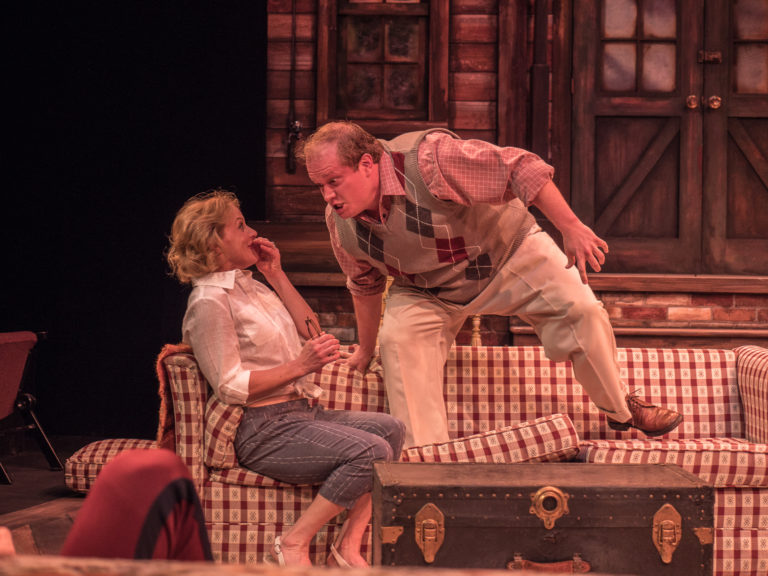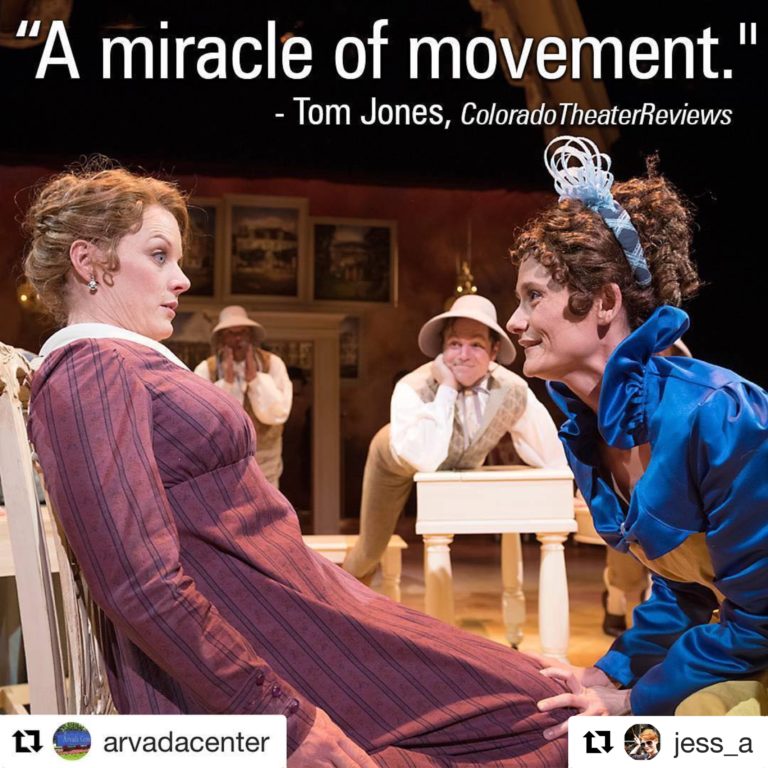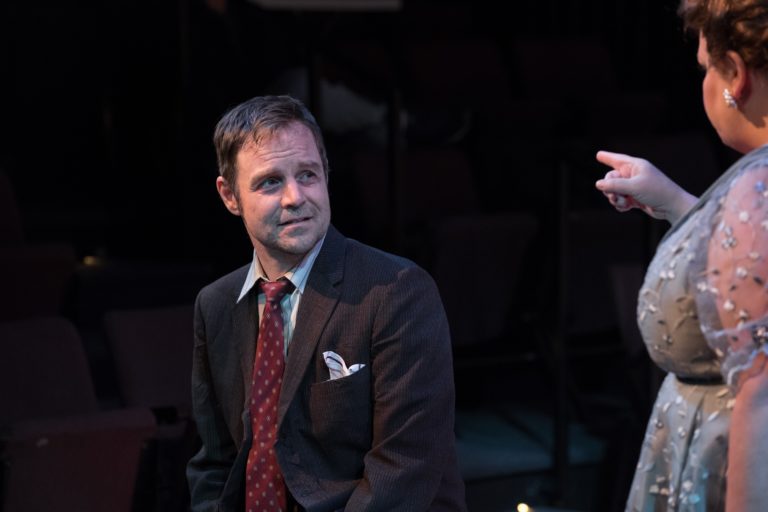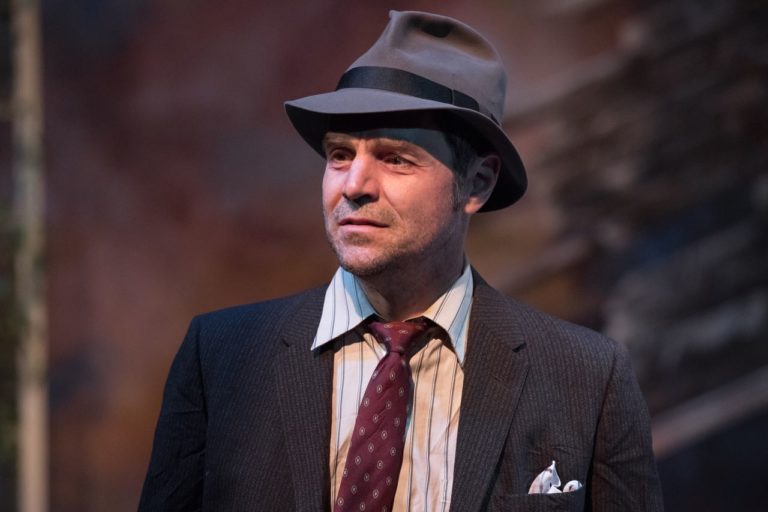The Foreigner Creates Gales of Laughter — and Some Insights
October 19, 2017
The Foreigner, currently showing in the Arvada Center’s Black Box Theater, is a farce — and New York magazine’s acerbic onetime critic John Simon thought it a dumb one when it opened in 1984, peopled by stereotypical hayseeds with exaggerated Georgia accents and full of ridiculous plot twists. But this production reveals that it’s also a generous-spirited work that asks us to look beyond the obvious and learn to understand each other. The script touches on themes of otherness and acceptance that resonate strongly in Trump’s America, and it shows how language can both divide and unite, while silence sometimes has even more power. And like all good farces, it’s very, very funny.
Good-natured British soldier Froggy LeSueur arrives at Betty Meeks’s Fishing Lodge Resort in Tilghman County, Georgia, with his friend Charlie Baker. LeSueur comes to the area for three days every year to instruct soldiers at a nearby army camp in demolitions, and he plans to deposit Charlie at the lodge for the duration. But Charlie is pathologically shy, unsure whether his hospital-bound wife in England is terminally ill or cheating on him, and the last thing he wants is to socialize with a group of strangers. Froggy comes up with a solution. He tells lodge owner Betty that Charlie is from an unspecified foreign country and doesn’t speak a word of English, so she and her guests should leave him alone. But Betty, fascinated at meeting a real foreigner, starts chatting merrily with— or to — her intriguing silent guest the minute Froggy leaves.
Pretty soon the other residents are involved, too: wealthy ex-debutante Catherine, who’s trying to decide whether her brother Ellard, whom everyone sees as touched in the head, is sane enough to share their inheritance; her fiancé, the unctuous Reverend David Marshall Lee, who’s quite sure he isn’t; Ellard himself; and Owen, a sinister secret Ku Klux Klan leader. Charlie’s silence evokes soul-baring confessions from Catherine, and plots to relieve trusting Betty of her property get discussed in his apparently uncomprehending presence.
Despite the suave British accent no one is allowed to hear, Charlie persuades Ellard to give him English lessons, and the results are a revelation. He learns to say “fa-awk” for fork, and Ellard gets a new and sunny confidence in his own intelligence. Charlie gains confidence too. Up to this point, The Foreigner is a sweetly transformational play.
But things get darker, and eventually we come to understand just what we are dealing with as conspirator Owen spills the beans. “You havin’ a nice time?” he asks Charlie. “You enjoy it now! ’Cause when I get to be county sheriff around here — an’ I got the Invisible Empire ta back me up — man, they ain’t gonna be none of you left in this country. Foreigners. Yeah. Gonna wipe you all right out — all you dummy boys, black boys and Jew boys. We gonna clean up this whole country by and by.”
Now Charlie has to save his friends, and to do this he needs to muster up every ridiculous gag and illusion he can think of. Who wouldn’t love a play in which pure evil eventually gets defeated by mockery, laughter and streams of nonsense syllables
With Geoffrey Kent directing, you know a production’s physical humor will be duly exploited and the dialogue intelligently rendered while emotional undertones still get their due, and that’s how it is. The cast is terrific, too, with Jessica Robblee a beautiful, high-spirited Catherine; Josh Robinson appealing as Froggy (though the cockney’s a bit off); Greg Ungar convincingly mean as Owen; Zachary Andrews as an elegantly handsome Reverend; and Lance Rasmussen’s Ellard so delightedly pleased with his own cleverness that you can’t help sharing his delight. Edith Weiss reveals the wisdom and gentle heart beneath Betty’s hayseed accent, and is also stitch-in-the-side funny. As Charlie, Sammie Jo Kinnett sports an English accent worthy of Rex Harrison in My Fair Lady (part of the joke is that Charlie’s actually far more verbally adept than those mocking or attempting to teach him), as well as a goofy, all-stops-out physicality and a gutsy, crazed creativity that lets him try anything and go anywhere for a laugh — the result being gales of laughter from the audience.





